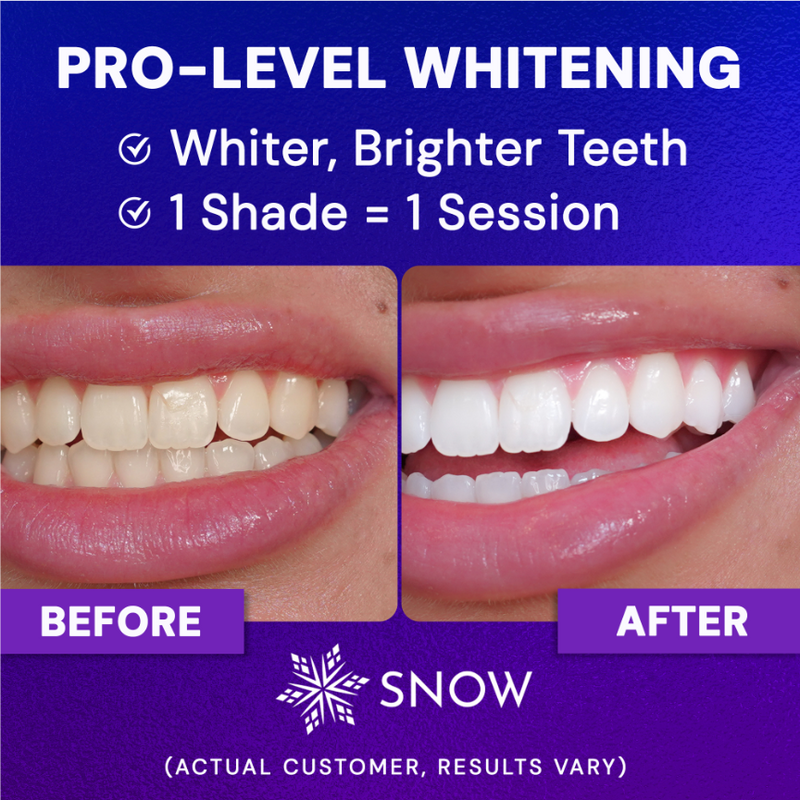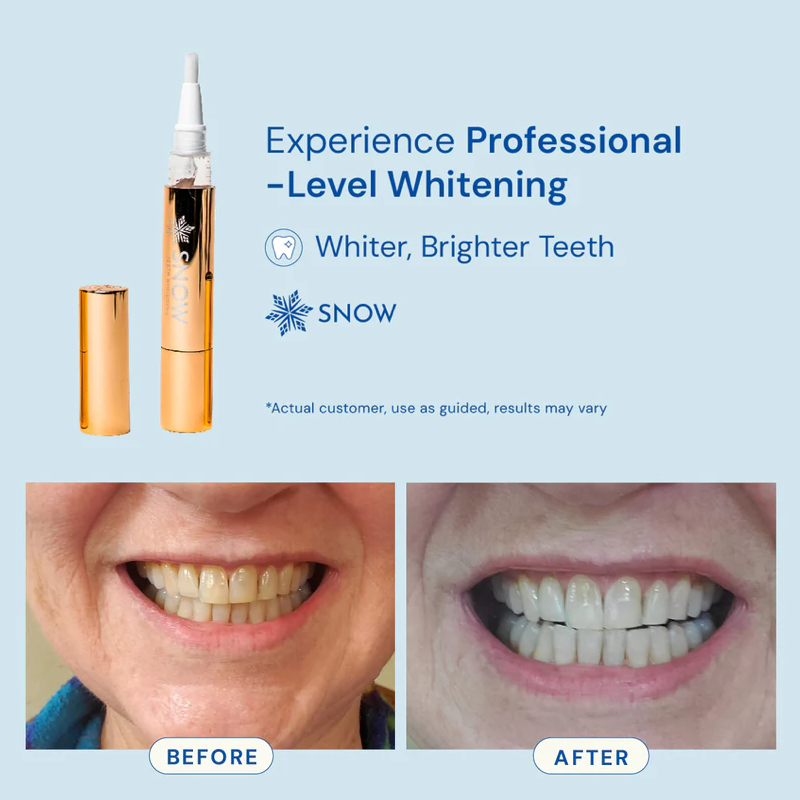
There is nothing less romantic than waking up, rolling over, seeing the love of your life, and realizing that you have awful morning breath. Even if you sleep solo, waking up with morning breath is less than ideal, causing you to cringe and gasp from your own breath.
Luckily, morning breath is an avoidable problem. From simple morning breath treatments to taking extra preventative measures, you can avoid morning breath entirely.
Here is everything you need to know about morning breath, from what causes it to how to avoid it. Let’s get started.
What Causes Morning Breath?

Almost everyone knows that poor oral hygiene causes morning breath, but there are other causes for the unfortunate situation too. Dry mouth and acid reflux, for example, are also common causes. Here are the most common reasons why you may be waking up with morning breath:
Poor Oral Hygiene
If you don't brush your teeth frequently or take care of your oral health, morning breath is bound to happen. From the natural moisture in your mouth to the food you eat, bacteria grows quickly. If you don't brush or floss frequently, food particles will get stuck in your mouth, causing it to smell and bacteria to grow.
As food sits in your mouth, your mouth bacteria will be sent to breakdown the food. This bacteria often has an odor, especially in the morning. Frequent morning breath may be a sign that you are not brushing your teeth effectively, forcing your bacteria to do the heavy lifting for you.
If your oral hygiene goes unchecked for long periods of time, morning breath can be a symptom of something a bit more serious. Periodontal disease is often a cause for morning breath and those who have not taken good care of their oral health. This disease affects your gums, and it causes serious infections.
Starting as gingivitis, periodontal disease needs to be treated by your dentist. Simply masking the morning breath smell will not treat the underlying cause. Your dentists will prescribe you measures to treat the disease, which should also treat the smell.
Dry Mouth
Even if you take great care of your oral hygiene, you can still wake up with bad morning breath. What gives? Most of the time, dry mouth is the cause of morning breath for those who take really good care of their teeth.
Your saliva removes bacteria, which is a leading cause of bad breath. If you have a dry mouth, you have less saliva, which in turn means that you have more bacteria in your mouth. It is normal for saliva production to decrease during sleep. As a result, many people experience morning breath simply because they have a dry mouth while they snooze.
Certain medications can exacerbate dry mouth. If you are on one of these medications, you may want to expect morning breath to become more of an issue.
What You Put Into Your Body
What you put into your body will dramatically affect your breath. Eating smelly foods or using tobacco products are often linked to morning breath. Even if you brush your teeth highly effectively, eating foods like garlic or onions may cause morning breath the day after you eat them.
Smoking is especially linked to morning breath, though all tobacco use can be connected to it. The more you smoke, the drier your mouth will get. As we already discussed, dry mouth is a leading cause of morning breath. Especially if you add on the not so yummy smell of cigarettes, morning breath is a big issue for smokers and tobacco users.
GERD
GERD, or gastrointestinal reflux/acid reflux, is another cause of morning breath. When you experience acid reflux, your stomach acid can wash back up into your esophagus at night. This creates a gnarly morning breath the next day.
Treating Morning Breath

So, you have woken up and realized you have pretty bad smelling morning breath. What do you do? Do you have to be cursed with onion-smelling breath for the rest of the day?
Unless this is your first run-in with morning breath (if that’s the case, I am jealous), you know that there are ways to treat morning breath after it has already happened. Mostly by brushing your teeth, you will be able to treat your morning breath, allowing you to take on the day with a minty-smelling breath.
Brush Your Teeth And Floss
The first thing you should do in treating your morning breath is brushing your teeth. I recommend getting a strong toothbrush and toothpaste with a minty flavor. If you drink coffee in the morning, you may also want to opt for teeth whitening toothpaste to combat stains at the same time.
Make sure you brush your teeth correctly. Your toothbrush should be held at a 45-degree angle to your gumline. This allows you to really get in there and properly clean along the gumline, between teeth, and on the tooth surface.
In addition to brushing your teeth, you should also floss. Even though many people view flossing as an unnecessary step in their oral hygiene routine, it is the best way to get plaque and food particles out from between your teeth and gumline.
Flossing also helps remove plaque buildup. The less plaque you have, the less that can stick to your teeth, meaning that your breath will smell better. We suggest getting charcoal floss because it is the best.
Drink Water
Since morning breath is often caused by dry mouth, you should also drink water in the morning. This will help rev up your saliva production for the day, which will help treat your morning breath and keep your breath smelling fresh.
If you are anything like me and need a bit of tea or coffee in the morning, feel free to drink that when you wake up, but make sure you drink a lot of water in the morning too. Not only will drinking water benefit your breath, but it will also wake up your organs and the rest of your body, benefiting your health as a whole.
Try Sugar-Free Gum
Some mornings are so busy that all you can do is brush your teeth and run out the door. On those days, you might need a little extra help but don't have the time to commit to flossing and an intensive routine. Have a pack of sugar-free gum in your car for these mornings.
The sugar-free gum won't give bacteria sugar to thrive on. At the same time, it stimulates saliva flow and freshens your breath. This makes it a great option for the mornings when you don't have as much time to drink a lot of water or floss.
Still, even on busy mornings make sure to brush your teeth. Brushing your teeth every morning is great for your oral health. Not to mention, no one wants to talk to you if you have not brushed your teeth yet.
How To Avoid Morning Breath

Even though it's great that you can treat morning breath, prevention is often the best treatment. It means that you won't have to worry about waking up with morning breath. There are some things you can do to prevent morning breath and avoid it entirely.
Practice Good Oral Hygiene
We cannot reiterate enough how important it is to practice good oral hygiene. Your teeth last you your entire life. Make sure you take care of them so that they don't decay or get smelly.
Practicing good oral hygiene obviously means brushing at least twice a day and flossing. Remember, brush at a 45-degree angle to the gumline.
You may also want to incorporate whitening into your oral care routine. Whitening your teeth ensures that they are extra clean and sparkly. Not only will this ensure that your teeth look great, but it can boost your ego at the same time.
If you're looking for the best teeth whitening treatment for regular use or morning breath, I suggest a good whitening toothpaste with carbamide peroxide. This option won't be too tough on your teeth, but it will be whitening, keeping your smile minty and white.
For the special days when you want a little extra care, you can also go to a professional tooth bleaching service. Simply Google “teeth whitening near me.” This option will be more expensive than a whitening toothpaste, and it should not be done too often or else you could damage your teeth.
Drink Water Before You Go To Bed
If you take good care of your teeth, you can still have morning breath, especially if dry mouth is an issue for you. Prevent dry mouth by drinking a lot of water throughout the day, especially before you go to bed. Drinking water will help keep your mouth from getting too dry during the day or while you sleep.
Drinking water also helps to flush out food particles and bacteria in your mouth. With fewer bacteria and particles hanging out, you are going to experience better breath instantly.
Watch What You Eat
If you think that your garlic-heavy dinner is to blame for your morning breath, watch what you eat in the afternoon and night. Skipping foods with heavy garlic or onion, for example, can help out with the morning breath.
You should also avoid drinking coffee after the afternoon. Even if the coffee is decaf, coffee can give you a bad morning breath if you drink it too close to going to bed.
Overall, just try to eat a well-balanced diet. Though this won't eradicate all morning breath, it will help you avoid foods that are especially prone to causing bacteria buildup and general bad breath.
Quit Smoking
Freshen your breath morning, noon, and night by giving up your nasty habit of smoking. If smoking is to blame for your morning breath, the only way to really make your breath smell better is to give up smoking and tobacco use.
Not only will giving up smoking freshen your breath, but it will also help your health as a whole. Smoking and tobacco use are linked to a number of nasty illnesses. Put your health and best breath forward by giving up tobacco use.
If you are finding giving up smoking to be incredibly difficult, you can try smoking patches or talking to your doctor. The pain from giving up the nasty habit will be worth it in the end.
Get Acid-Reducing Medication
If your morning breath is caused by acid reflux, have your doctor prescribe you an acid-reducing medication. You can take that before you go to bed so that the acid doesn't wash up into your esophagus.
You can also try sleeping more upright. The more upright you sleep, the more difficult it will be for the acid to make it to your esophagus.
The Combo Approach
The best way to prevent morning breath is to take a combination approach. What I mean by this is incorporating multiple of the preventative measures mentioned in your daily routine. For example, you should definitely practice better oral care and drink a lot of water.
If you smoke, you should practice better oral care, drink a lot of water, and give up smoking. Don't just pick one of the techniques and expect it to fix your life completely. Instead, combine multiple of these techniques for the most effective results.
Conclusion
Nobody likes morning breath. Luckily, there are things you can do about it. Most notably, you should focus on your oral hygiene, drink a lot of water, and eat a well-balanced diet. Simply by doing these three things, you should experience a significant improvement in your morning breath.
If you still have morning breath after making these changes, you may need to quit smoking or talk to your doctor about the potential of you having acid reflux. All in all, you should definitely prioritize your oral health and drink lots of water, whether or not you have morning breath.






































































